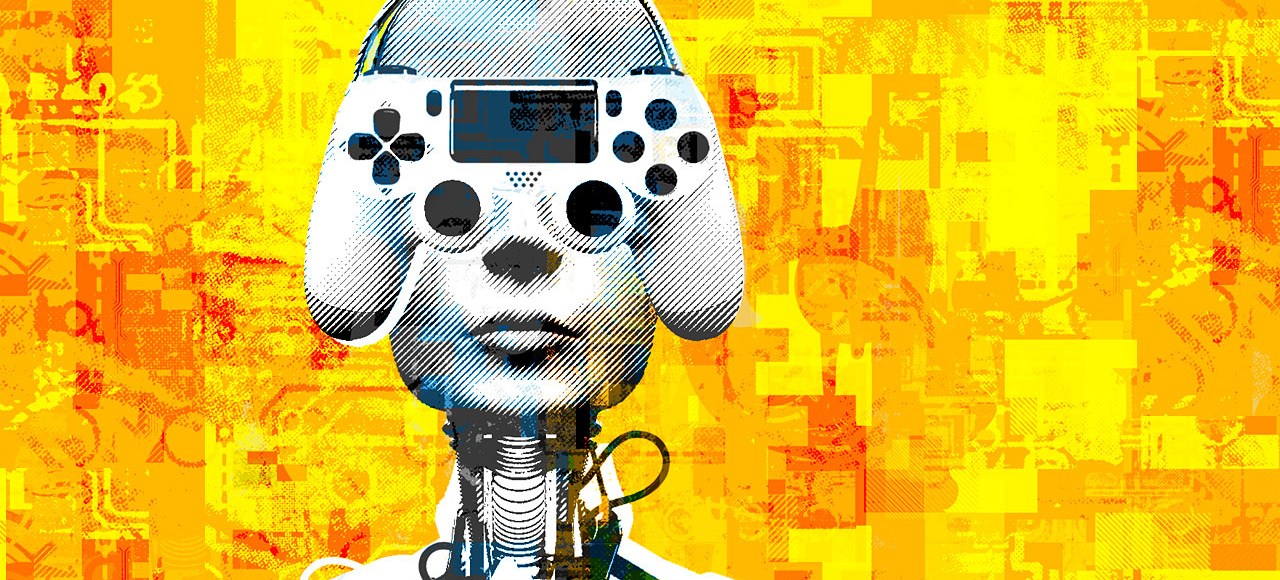We seem to have two tracks in ML. Somehow ML is both rocket science and tractors.
15 December 2020 (Paris, France) – Last month Google’s DeepMind announced “Alphafold” which uses machine learning (ML) to work out the likely structures of complex folded proteins. I covered this … as well as Deep Mind’s incredible history … in depth two weeks ago so I shall not repeat myself. This is a long-running, important and very hard biology and medicine problem. It’s a big deal.
A general observation, though. We seem to have two tracks in ML. On one hand, cutting-edge scientists inside cutting-edge companies unlock dramatic new things. But on the other, huge numbers of boring old-economy companies automate internal processes with pieces of ML that have very quickly become generic commodities. We see ML popping up in everyday life. I jumped into my tsunami stream of ML stories just over the last three months and found ML stories on:
• Managing traffic
• Making beer
• Better language translation
• Redefining music
• Moderating social media
• Deciding what to eat
• Tutoring students
• Creating video games
Businesses are shifting their AI priorities not just to strategic applications but “grunt work” tasks … digitizing documents, automating invoices, monitoring inventory, making beer, etc.
We seem to have two tracks in ML. Somehow ML is both rocket science and tractors.
Plus we are building some powerful tools to analyze all of this, such as the brainiacs which designed an AI database to make past AI failures visible (click here).
Yes. There is lots and lots out there. You owe it to yourself to look, to see the “Big Picture”.
Oh, and did I say video games? Digital technology has made day-to-day living a game. There’s no escape. But that’s okay. And have I got a back story for you.
Over the lockdown I’ve kept my pace of three to four book reads a month. Science/COVID have been the primary reads because of long running coronavirus series which just hit 60 posts. But I have also delved into a few in-depth technology reads, my latest favorite being Alessandro Baricco new book, The Game, which maps out the transformations that the digital revolution has wrought upon the landscape of human experience. It’s “the game” because this is the name of the civilization we’re living in, which is fundamentally connected to the DNA of the digital. The DNA of this civilization comes from video games. Not Call of Duty, but from the first generation of video games, like Spacewar!, where the hackers at the time were experimenting. Everything was born out of that experimentation. So the basic thesis of the book is that every digital device is, fundamentally, a video game: in its intellectual construction, in its logic.
And he has some great history. Take Caterina Fake, the co-founder of Flickr. Flickr originally started as a video game company, and she and her team had created a photo uploading tool as part of their video game. The video game failed – but the photo uploading tool they built went on to become a billion dollar company. Really remarkable.
And I’ll go one step further. Caterina Fake’s co-founder, Stewart Butterfield. After they sold Flickr they tried a second time to start a video game company. But that failed – and they ended up turning it into a company you may have heard of … Slack, another billion dollar company. The book takes you through Silicon Valley and all of these failed video game designers that ended up creating billions of dollars by accident. And all they really wanted to do is make video games.
Flash forward to today. Artificial intelligence and DeepMind and AlphaGo and machine learning and deep neural networks. One of the technologies that was critical to machine learning and deep neural networks was the GPU (graphics processing unit) – which is a piece of the processing hardware that was originally designed for video games. Only a decade later did people discover that this is the perfect thing for creating artificial intelligence, for advancing machine learning. A bizarre but fundamental law of the digital revolution. The power of the digital is connected to the needs of the video game industry, which pushed the boundaries of creating that power. Well, the pornographic industry, too, which my Chief Technology Officer covered in a post here.
If you chat with just about any Big Tech engineer about user interface (UI) design she/he will tell you about the extreme impact of gaming on that design. Ashish Kapur, a long-time engineering friend who once worked for a company called UX Studio which helped mobile tech companies design UI told me:
This tech has certainly changed and produced effects on our way of interacting with other humans. Obviously the sentimental/emotional relations, going through the websites that connect humans now have changed dramatically the way in which humans interacted before. The panorama – the background – of our lives is completely changed. Whether we directly participate in it or not, the environment has changed dramatically. The feelings, the instincts; everything is the same, though. We just move in a different landscape. And thanks to this new digital civilization, people experience emotions, have emotional states, that were reserved, until the last century, only to very few people.
This is typical of the digital civilization. It was an experience that was very selective and it was kind of a privilege of the few. And then the digital civilization makes that experience available to a huge number of people. Go back and re-read “Sapiens” by Yuval Noah Harari. He writes about this new digital civilization, how people experience emotions, have emotional states, that were reserved, until the last century, only to very few people. Naturally, that comes with huge risks. But we have de facto accepted this risk. There is no more question about that.
Yes, it is very much cultural. Having a foot on two shores … the U.S. and Europe … the digital perspectives are different.
NOTE: today the EU Commission published its drafts of two major new pieces of tech regulation: the Digital Markets Act (aimed to tackle unfair competition in the sector, and the Digital Services Act (aimed to force tech companies to take more responsibility for illegal behavior on their platforms). There is lots to unpack there regarding attitudes on the entire digital ecosphere but I’ll save that for a post next year. I close out the year this Friday and She-Who-Must-Be-Obeyed says we need to finish Christmas shopping before we head back to Greece.
For me, my digital escape is books. The tactile. There are two beautiful lines in Baricco book: “Books are a totemic fortress.” And: “We will never be lost as long as we have books”. I’m very struck, in a story that is all about this digital revolution, there are these moments where we come back to the essential role that books can play. And how they have such a different posture: you read them from start to finish. They’re not hypertextual; they’re not interactive. I still average 3-4 books a month and to me books are the most essential role for all of media.
Well, after a few sessions of Spacewar!

